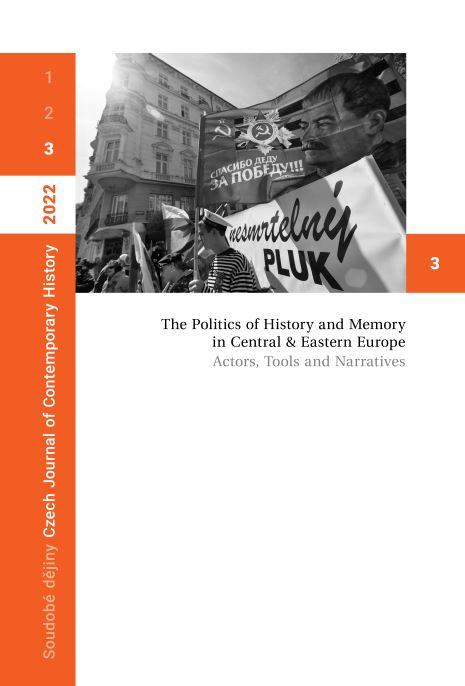The Museal Production of Hungary’s Inorganic Past and Poland’s Postponed Victory
The Museal Production of Hungary’s Inorganic Past and Poland’s Postponed Victory
The Case of the House of Terror and the Warsaw Rising Museum
Author(s): Rose SmithSubject(s): History, Cultural history, Visual Arts, Comparative history, History of ideas, WW II and following years (1940 - 1949), Post-War period (1950 - 1989), Transformation Period (1990 - 2010), Present Times (2010 - today), History of Communism, Politics of History/Memory
Published by: AV ČR - Akademie věd České republiky - Ústav pro soudobé dějiny
Keywords: Hungary;Poland;communism;museums;politics of memory;history politics;museum studies;national identity;Terror Háza/House of Terror;Muzuem Powstania Warszawskiego/Warsaw Rising Museum;Fidesz;PiS
Summary/Abstract: More than thirty years after the fall of communism, both Hungary and Poland are still trying to reinvent their national identity by understanding their pasts. As flagship museums of Viktor Orbán’s Hungary Civic Alliance (Fidesz) in Hungary and Jarosław Kaczyński’s Law and Justice Party (PiS) in Poland, the House of Terror (Terror Háza) in Budapest and the Warsaw Rising Museum (Muzeum Powstania Warszawskiego) have been used as epistemological tools in advancing the governing party’s respective memory politics. Within their portrayal of the nation’s contemporary past, these museums also endorse a particular national identity that serves the political desires of both Fidesz and PiS. This article traces how the museums present and signify the nation and how they articulate the national identity espoused by the museum. The author borrows methodological approaches from museum studies and formulates her own research protocol, which identifies three layers of national identity articulation: the presentation of the nation, the representation of the nation, and the political production of national identity.
Journal: Soudobé Dějiny
- Issue Year: XXIX/2022
- Issue No: 3
- Page Range: 825-851
- Page Count: 27
- Language: English

